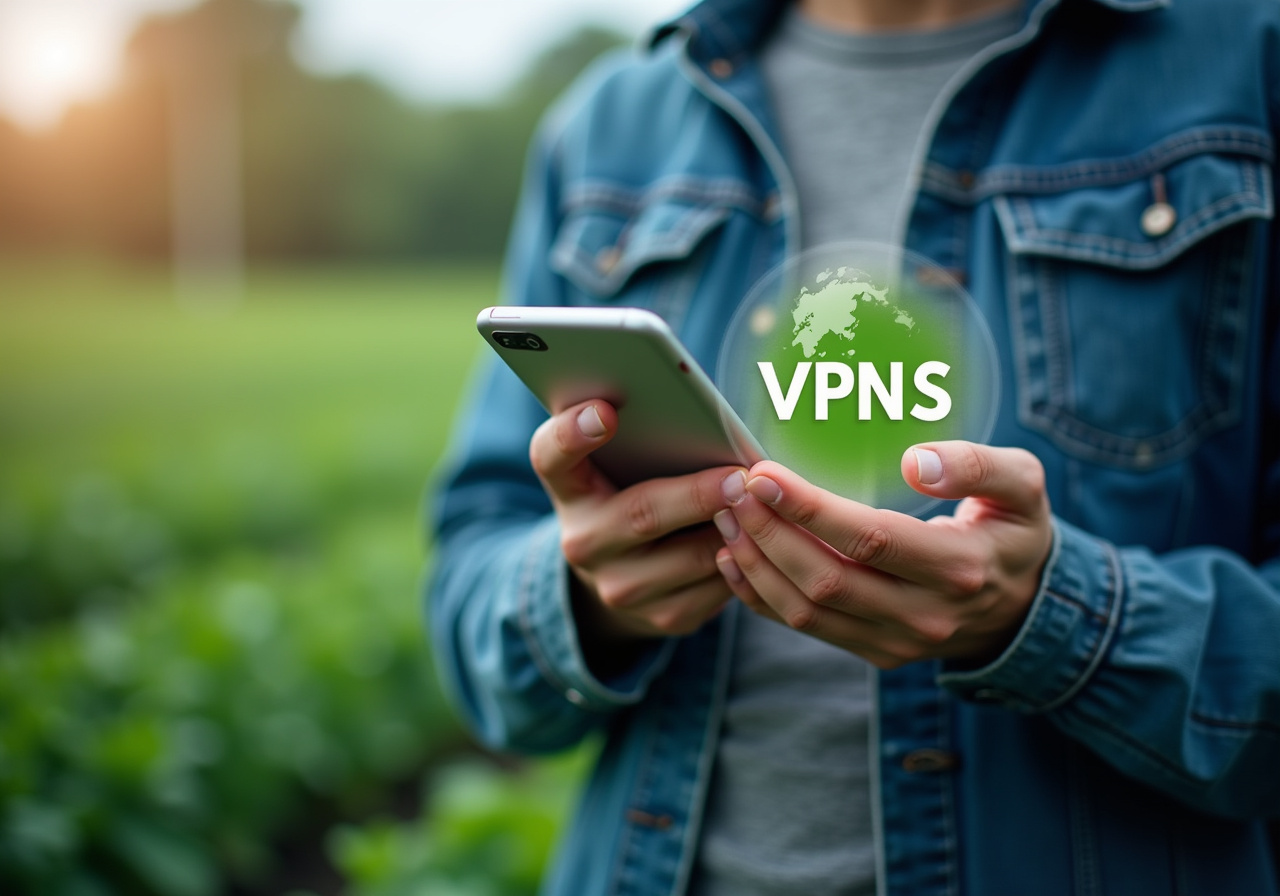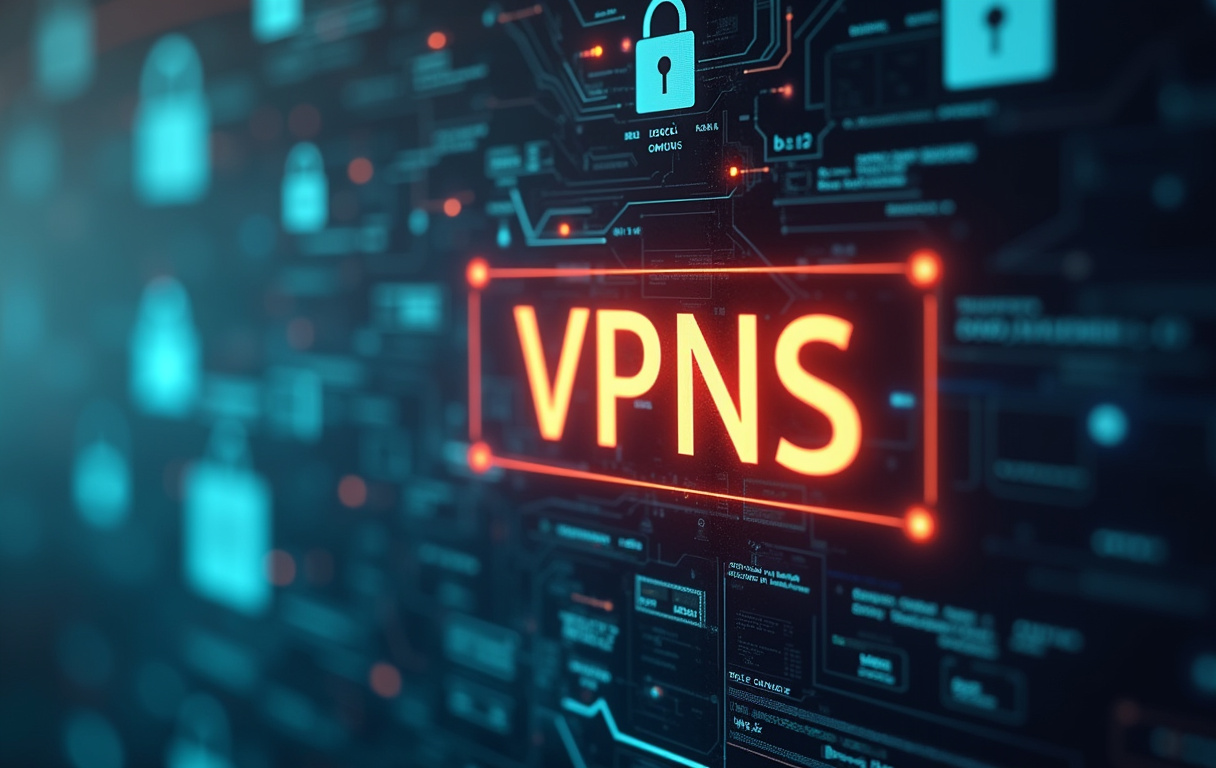VPNs for Scientific Expeditions: Securing Research Communications

Table of Contents
research communication security
Scientific expeditions are the cornerstone of groundbreaking discoveries, pushing the frontiers of human knowledge across diverse and often inhospitable environments. These ventures, ranging from the desolate Arctic landscapes to the depths of the submarine trenches, facilitate the collection of invaluable data, execution of critical experiments, and the unraveling of nature's intricate secrets. However, the very essence of these expeditions – their intrinsic remoteness, scarcity of reliable infrastructure, and reliance on potentially unsecured communication channels – introduces significant vulnerabilities that directly threaten and compromise .
In this context, a robust Virtual Private Network (VPN) solution transcends being merely a technological convenience; it becomes an indispensable necessity for shielding sensitive information, vigorously upholding , and ensuring the seamless continuity of these paramount scientific endeavors; constituting a truly potent . This requirement extends far beyond simple encryption; it encompasses the establishment of a fortified communication pathway, ensuring that the entire process, from initial data acquisition to the exhaustive analysis back in the laboratory, remains inviolably protected against a vast spectrum of threats, both originating internally and externally. The dependence on satellite internet, frequently the only viable connectivity solution in these far-flung locations, further exacerbates the security challenges.
Satellite links are particularly susceptible to interception, making encryption measures utterly paramount. Adding to the complexity, shared network environments commonly found at research stations or even temporary field camps create inherent risks of unauthorized access and potentially devastating data breaches. An expertly implemented serves as an impenetrable secure tunnel, meticulously encrypting any and all data transmitted between the remote field location and the central home base, effectively shielding it from unauthorized access and malicious actors with ill intent.
This security measure becomes particularly crucial when considering the highly sensitive nature of much research data, which may include genetic samples, specific locations of endangered species, or even proprietary and valuable research methodologies. Beyond simply mitigating the persistent threat of external access, the implementation of a well-configured VPN can additionally minimize the risk of internal data breaches, irrespective of whether these are accidental or motivated by malice. By rigidly controlling access to sensitive data and diligently monitoring network activity, a VPN assists in maintaining stringent and meticulously ensures that only explicitly authorized personnel possess the requisite access to specific categories of information.
This additional layer of stringent protection is of particularly key importance in collaborative, inherently complex research projects which often involve numerous academic institutions and a wide range of individual contributors. The effective implementation of a VPN necessitates meticulous planning and the thorough consideration of the specific and unique variables of each individual expedition. A wide range of critical factors, which may include bandwidth limitations, extremely tight power constraints, and the general level of technical expertise available within the field team must all be fully taken into account during this critical planning phase.
A user-friendly VPN client, capable of being easily installed and configured on a diverse selection of devices, becomes absolutely essential for ensuring ease of use in challenging field conditions. Furthermore, the VPN solution should be fully and seamlessly compatible with the diverse range of communication protocols utilized by the various research instruments and data collection tools employed during the expedition. Given the often-extreme remoteness of the locations in which many of these expeditions operate, reliability of the technological solution must be considered a paramount and overriding consideration.
A VPN service that can demonstrate a history of high uptime, as well being able to offer consistently rapid technical support, regardless of the time or location, is also very, very important for guaranteeing a smooth and continuous flow of critical data. The cost of subscription to VPN services can often present real obstacle, particularly for those expeditions operating on the basis of what is often a severely limited budget. Open-source VPN solutions often offer a more cost-effective alternative, but will typically require a greater degree of in-house technical expertise to initially set up and then to continually maintain.
Ultimately, consistently, the investment specifically earmarked for a reliable and demonstrably secure VPN solution will translates to a substantially lower overall risk of any data loss, corruption, or theft, thereby efficiently safeguarding both the integrity of the vital research and also the enormously valuable insights it provides.
expedition VPN
The astute selection of an appropriate protocol is fundamentally critical for achieving the optimization of both security and practical performance within the challenging operational environment of a scientific expedition in the field. A multitude of protocols are commonly employed, each characterized by its individual strengths and inherent weaknesses regarding fundamental considerations such as security, speed of operation, and overall compatibility with existing systems and infrastructure. OpenVPN, an exceptionally well-regarded open-source protocol, is universally acknowledged for possessing robust security features and commendable flexibility.
It provides broad support for a wide array of encryption algorithms and can be precisely configured to operate on a number of different ports, making it particularly challenging to detect and subsequently block. Its open-source nature actively facilitates thorough technical auditing and encourages continuous community-driven enhancements over time, ensuring its ongoing security and sustained reliability. IPsec (Internet Protocol Security) is an alternative and equally popular choice, frequently deployed in conjunction with L2TP (Layer 2 Tunneling Protocol).
IPsec provides robust encryption and firm authentication, making it an often-appropriate option for those looking to protect particularly sensitive data with confidence. However, in contrast to OpenVPN, it is often more complex to configure optimally and additionally may suffer compatibility failures, when used in conjunction with certain overly strict firewall configurations, that can prove problematic. WireGuard is a more recent VPN protocol that has been increasingly gaining a strong following, driven by its exceptional operational speed, inherent simplicity, and its impressive suite of strong security capabilities.
The protocol makes use of state-of-the-art cryptography and has been deliberately and expertly designed to be extremely lightweight in operation, rendering ideal for deployment on systems and devices boasting only limited processing capabilities. IKEv2 (Internet Key Exchange version 2) represents yet another viable and suitable protocol for various VPN applications. It is capable of automatically re-establishing a VPN connection after what might only have been a temporary loss of signal, for example, when a user quickly switches from one operational communications network using WiFi to an alternative relying on cellular data protocols.
Each independent connection, established through the operation of the IKEv2 system, is secured using its own distinct and dynamically-generated set of unique keys and a specifically selected encryption algorithm. The final choice of VPN protocol must be deliberately determined and then based on an extremely careful assessment of all the specific considerations and requirements inherent within each unique expeditionary context. A number of essential factors, which may include considerations concerning underlying security requirements, any known bandwidth limitations, as well as the pre-existing levels of technical understanding and expertise present amongst the members of the field deployment team must all be thoroughly assessed before a decision is ultimately reached.
It remains critically essential to conduct thorough preliminary testing of each of the various alternative protocols within the actual operating environment that is expected, ensuring an accurate reflection of any real-world conditions that might ultimately prevail. Testing should also meticulously evaluate any negative impact induced by the VPN on essential operational aspects such as data transfer speeds, the overall operational battery life of equipment, and the general system performance of essential equipment and devices. Consistently and regularly auditing the entire VPN configuration and also its accumulated usage logs serves as an additional essential safeguard for rapidly detecting and successfully addressing any potential security vulnerabilities that might arise over time.
Consistently using strong passwords across any deployed system, activating and mandating the use of multi-factor authentication wherever technically possible, and consistently keeping the VPN software application fully up to date with the very latest updates and security patches all represent essential basic security best practices in remote field environments. The appropriate educating of all personnel within the field deployment team regarding approved VPN usage, including security protocols, additionally represents a key step in preventing unnecessary vulnerabilities. Critically, each and every team member must be carefully trained not only to properly use all deployed equipment, but also to rapidly recognize and immediately report any form of suspicious activity that might be observed, as well as constantly enforcing compliance with all essential pre-defined security procedures when specifically handling any information or data of a particularly sensitive nature.
Actively implementing a highly robust data backup and comprehensive recovery action plan forms a key final step in minimizing the specific risks related to the loss of potentially vital operational data, perhaps resulting from equipment failures in the field, unexpected impacts from natural events, or even from sustained attacks or intrusion attempts by sophisticated forms of hostile cyberthreats. Best practices suggest that all such backups should be maintained both physically in the field, but also remotely at the secure home base of operations, ensuring full data recoverability in the event of any form of emergency. Data losses can occur via a wide range of scenarios, perhaps including external hard disk faults or even theft and accordingly deployed VPNs must all be reliably evaluated on a consistent basis, looking for emergent security loopholes, as well as actively monitoring all communication to rapidly prevent any attempted data hacks.
expedition VPN
Beyond the immediate technicalities of deploying and managing an , it is crucial to proactively establish clear and comprehensively detailed security policies and procedural standards that ensure the ongoing and reliable protection of gathered , while simultaneously guaranteeing both the long-term retention and immutable state of all critical research . A well-defined and professionally-maintained security policy comprehensively addresses, in exacting detail, all operational aspects of data handling – comprehensively covering facets from initial collection and secure intermediate storage, through to reliable and secure transmission, and finally including all necessary details on all methods relating to eventual required data disposal. Central to its purpose, each such policy should be fully and properly documented, so as it can be consistently communicated to all relevant members of the operational expedition team, and be proactively subject to regular, minutely detailed reviews in order that it can be constantly updated to properly reflect any ongoing changes to underlying threat landscapes, as well as to incorporate any revisions necessary to ensure sustained compliance with current best practices.
The policy needs to clearly delineate all specific roles and designated responsibilities for each specifically assigned team member in regard to maintaining vigilant levels of data security at all times. This specifically includes clearly specifying which personnel can be granted authorization to access what classes of specifically determined sensitive data, as well as all of the accepted procedures that must be meticulously followed during the routine course of all normal operational data handling activities. It is also highly advisable, as best practice, to fully integrate strict enforcement mechanisms to ensure sustained compliance with all relevant security standards.
Regular and detailed auditing of access logs can contribute significantly to preventing unauthorized data breaches and support both proper fraud detection and effective misuse prevention, across all elements of a deployed system. Appropriate data encryption measures really do need to be actively employed, across the entire spectrum of all stored and transmitted data. To specifically protect sensitive data, a strong and well-implemented encryption protocol is essential, in order that data, both actively stored and in transit, can be reliably protected from potential interception or unauthorized forms of access.
Furthermore, all personnel should be rigorously trained in security best practices and specifically instructed on precisely how to identify and effectively avert likely phishing attacks or various other forms of equally subtle social engineering attempts. Strong password enforcement methodologies need to be rigorously applied to ensure strong and unique passwords are known, and used, across every deployed platform, with periodic enforced password changes becoming mandated as standard practice. Specifically, access to all deployed resources should be actively controlled through the enforcement of robust access control lists.
Strong access control practices are critical to limiting any potential blast radius resulting from a security breach or any form of system compromise. Appropriate mechanisms to reliably monitor and enforce access rights, across all deployed sensitive data, must be vigilantly maintained. Physical security controls, in any remote field location, are equally important.
Securing all the systems and devices, deployed in what may be highly challenging environments, really represents an essential consideration. The overall physical controls deployed, including any appropriate restrictions to physical access, should be meticulously reviewed and updated on a highly regular basis. A formal incident response plan should be fully developed, tested, and actively communicated to all relevant team members.
Preparation for any eventual security incident or data breach is absolutely essential, along with establishing a fully proactive formal incident response plan that specifically details the precise step-by-step actions to be invariably undertaken in the unfortunate event of a compromise. The plan crucially needs to include rigorous and pre-defined procedures for containment, eradication, recovery, and any subsequent necessary reporting processes, so appropriate steps are taken as early as practical to mitigate any potential harm resulting from any potential security-based incident. By conscientiously applying these various security policies and adopting corresponding procedural standards, both expedition leaders, and assigned team members, can proactively help ensure that collected field data remains optimally protected and that the overall integrity of all research outcomes will always stay rigorously maintained.
The overarching outcome that results is effectively the promotion of trust, reliability and sustained overall credibility in all the scientific research work that is subsequently presented to the broader academic community.
VPN for science
The successful integration of a within a scientific expedition requires careful consideration of several practical factors, encompassing both the technological and operational aspects of the deployment. Bandwidth limitations, often a significant constraint in remote locations, necessitate the selection of a VPN protocol and configuration that minimize overhead and maximize throughput. Lightweight protocols, such as WireGuard, can offer a performance advantage over more resource-intensive options like OpenVPN, particularly when dealing with satellite internet connections or other low-bandwidth links.
Data compression techniques can further reduce the amount of data transmitted, improving transfer speeds and conserving bandwidth. However, it's crucial to ensure that compression algorithms are compatible with the data formats used by research instruments and analysis tools to avoid data corruption or loss of information. Power consumption is another critical consideration, especially for expeditions that rely on battery-powered devices.
The VPN client should be optimized for energy efficiency to minimize battery drain and extend the operating time of field equipment. Utilizing low-power modes and disabling unnecessary features can help conserve battery life. Furthermore, it's essential to have a reliable power management strategy in place, including backup power sources and charging solutions.
The user-friendliness of the VPN client is paramount for ensuring that all team members, regardless of their technical expertise, can easily connect to the VPN and use it effectively. A simple, intuitive interface with clear instructions and helpful troubleshooting tools can minimize frustration and reduce the risk of user error. Providing comprehensive training on VPN usage and security protocols is also essential.
The training should cover topics such as connecting to the VPN, verifying the connection status, and troubleshooting common problems. Technical support should be readily available in case of any issues. A dedicated point of contact or a responsive support team can provide timely assistance and resolve technical difficulties.
The support team should be familiar with the specific VPN configuration and the unique challenges of the expedition environment. Compatibility with different operating systems and devices is crucial for expeditions that utilize a variety of equipment, including laptops, tablets, smartphones, and specialized research instruments. The VPN client should be compatible with the operating systems used by these devices and should be able to seamlessly integrate with the data collection and analysis tools.
Testing the VPN's compatibility with all relevant software and hardware before deployment is essential. Scalability is also an important consideration, particularly for large expeditions with numerous participants. The VPN should be able to handle a large number of simultaneous connections without performance degradation.
A scalable VPN infrastructure can accommodate future growth and ensure that all team members can access the network resources they need. The cost of the VPN solution should be carefully evaluated, considering both the initial setup costs and the ongoing operational expenses. Open-source VPN solutions can offer a cost-effective alternative to commercial VPN services, but may require more technical expertise to set up and maintain.
A thorough cost-benefit analysis can help determine the most appropriate VPN solution for the expedition's budget and operational requirements. Carefully balancing these practical considerations ensures successful VPN integration, optimizing and ensuring reliable , thereby supporting groundbreaking during critical missions which further the goals of .
VPN for science
The future of within scientific expeditions holds immense potential, driven by advancements in technology and an increasing awareness of the importance of data security and privacy. Emerging trends suggest a move towards more sophisticated and adaptive VPN solutions that can seamlessly integrate with the evolving needs of researchers in the field. Artificial intelligence (AI) and machine learning (ML) are poised to play a significant role in enhancing VPN security and performance.
AI-powered VPNs can analyze network traffic patterns, identify anomalies, and automatically adjust security settings to mitigate potential threats. ML algorithms can also be used to optimize VPN performance by dynamically routing traffic through the most efficient servers and adapting to changing bandwidth conditions. Blockchain technology offers another promising avenue for enhancing VPN security and transparency.
A blockchain-based VPN can create a decentralized and tamper-proof record of all network activity, making it more difficult for malicious actors to intercept or manipulate data. The decentralized nature of blockchain also eliminates the need for a central authority, reducing the risk of censorship or data breaches. Edge computing, which involves processing data closer to the source, can significantly improve VPN performance in remote locations.
By deploying VPN servers at edge locations, researchers can reduce latency and improve data transfer speeds. Edge computing can also enable offline data processing, allowing researchers to continue working even when they are not connected to the internet. Satellite internet technology is also continually evolving which may improve communications for such expeditions, including those secured with a .
The development of low Earth orbit (LEO) satellite constellations is increasing bandwidth availability and reducing latency, making satellite internet a more viable option for scientific expeditions. LEO satellites can provide high-speed internet access to remote locations, enabling researchers to transmit large datasets and collaborate with colleagues in real-time. Quantum-resistant encryption algorithms are becoming increasingly important as quantum computers become more powerful.
Quantum computers have the potential to break many of the encryption algorithms that are currently used to secure VPNs. Developing and implementing quantum-resistant encryption algorithms is crucial for protecting sensitive research data from future threats. Enhanced collaboration between VPN providers and scientific organizations is essential for developing customized VPN solutions that meet the specific needs of researchers.
VPN providers can work with scientific organizations to develop VPN clients that are compatible with specialized research instruments and data analysis tools. They can also provide training and support to ensure that researchers can use the VPN effectively. The use of is likely to broaden and grow significantly, with increased awareness of the critical importance of data security, helping boost overall and reinforce consistent , all of which provides improved safeguards that actively ensure ongoing during what are critical and unique missions.
The increasing focus on secure remote access is driven by the growing number of collaborative projects and an increasing distributed workforce. By working together, VPN providers and scientific organizations can develop secure and reliable VPN solutions that support scientific discovery and innovation, thereby benefiting all concerned and facilitating ongoing work that contributes to significant progression across all aspects of scientific study.
Stay Updated
Get the latest VPN news, tips, and exclusive deals to your inbox.




